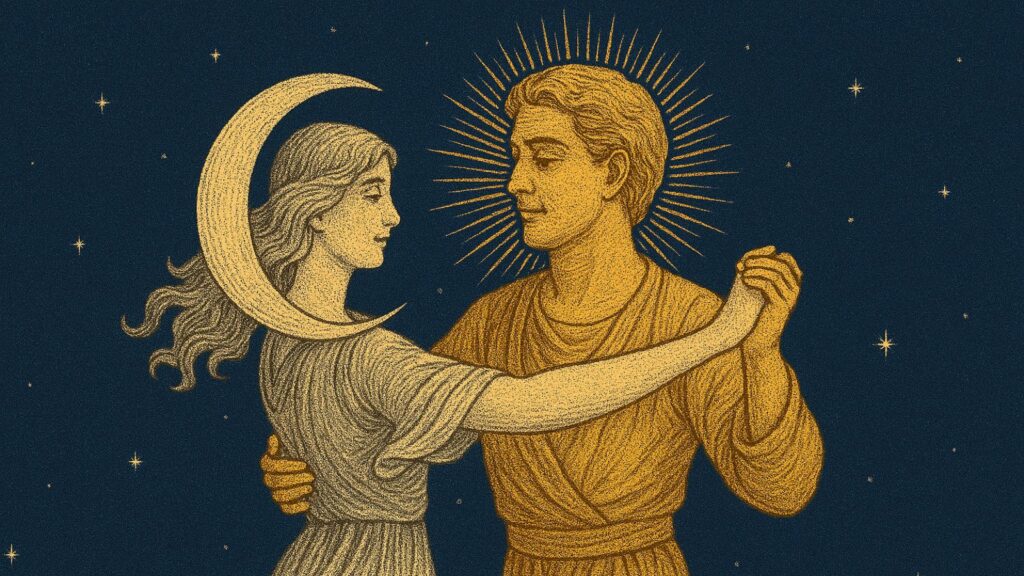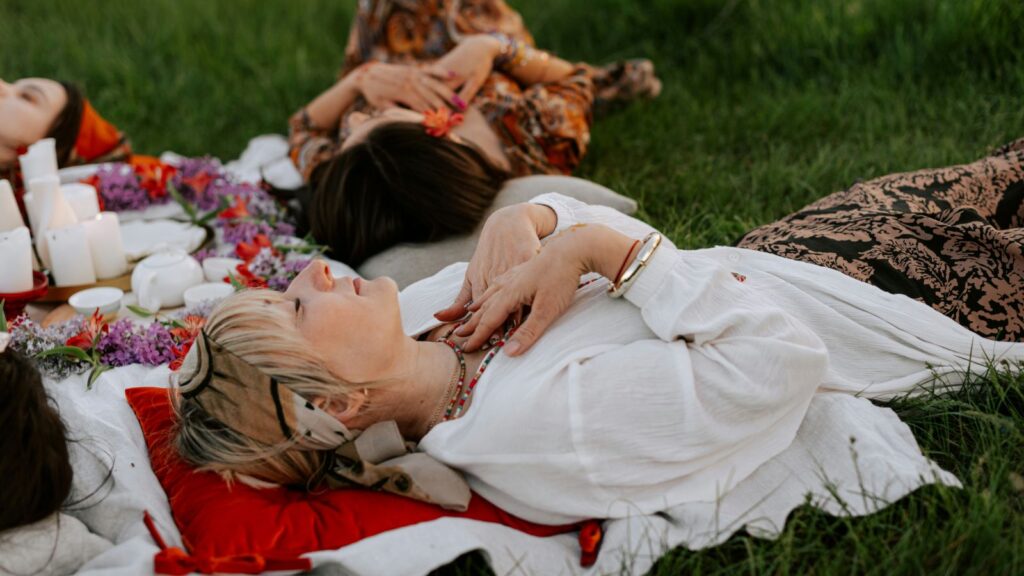Suppose, just for a moment, that all your favorite stories are true. Not literally true or true in every detail, but true in essence. To take a favorite and current example, what if the stories of our lives are not so different from, say, that of Bilbo Baggins?
Bilbo: an everyman, a homebody and lover of life’s simple pleasures. A hobbit whose life was moving along quite simply and quite comfortably–a little too comfortably–when one day adventure came knocking in the form of a wizard and 12 rowdy dwarves. To adventure, he says “good morning!” and promptly closes the door of his hobbit-hole in its face, and settles back down in front of the fire with a pipe, a cup of tea and a good book. When said adventure won’t take ‘no‘ for an answer, Bilbo complains, fusses, sulks, finally resigns; in short, he does anything but join the fray — that is, until he wakes up the next morning to the quiet home he thought he’d been craving only to find that he can’t stand the thought that adventure — that life itself — has just passed him by. Making up for lost time, he scrambles to sign the contract, answers the call, and sets out on a journey that, even if he returns from it some day in one piece, will leave him changed forever. And so the real story begins.
Destiny may not typically take forms as dramatic as Bilbo’s brand of treasure hunting and dragon slaying. But we all have our dragons to slay, our treasure to hunt; we all have our calling to fulfill and the potential to be the heroes of our own stories. The trouble is that for the most part we’ve forgotten that our lives have narratives, plots that run much deeper than whatever melodrama we’ve spun in order to create some meaning.
It may be profoundly un-postmodern of me, but I am suggesting that it’s time to reacquaint ourselves with the notion of destiny. With the idea that our lives have meaning not only insofar as we make it ourselves, as the existentialists and the materialists would have it, but meaning that, along with greatness, is ‘thrust upon us.’ All we have to do is figure out which part is ours and step out onto the stage that has been set up — and improvise a few soliloquies and wing an entire scene or two. Our lives aren’t scripted, after all, just outlined.
* * *
In his astounding memoir Of Water And The Spirit, Malidoma Patrice Some articulates the ontology of his people, the Dagara. In its essentials, their view is widely shared amongst traditional cultures, and it goes something like this.
The spirit world is as real as this one, but it is invisible and largely incomprehensible to us in something of the same way a denizen of Flatland (on a 2-D sheet of paper) can’t fathom a 3-D animal. As our spatial dimensions are more limited than those of the spirits, so with time: the beings there exist outside of linear time as we know it. (They can relate to our experience of time as we can relate to a 2-D world, but they are not constrained by it.) In this higher-dimensional world, each of us has a “spiritual double,” “representative,” or “higher self,” an undying version of oneself who sends avatars or incarnations into the material world, perhaps as a sort of experiment: what can consciousness learn from a collision with matter?
Our higher self chooses our births carefully so that it can gain valuable experience and carry out certain tasks appropriate to the Self’s state of development. As our lifetimes are interrelated through our higher self, which exists outside of linear time, choices made in one incarnate lifetime reverberate throughout our lives in the interplay of what the Southasian tradition calls karma — action and its ‘fruit.’ Every action is like a seed, inevitably growing into a tree of the same kind, which will then bear that kind and only that kind of fruit. Lessons we face in this lifetime have to do with choices made in others. The higher self is not omniscient or omnipotent, but is itself an evolving being, albeit one on a higher rung of the ladder that stretches between the One and the Ten Thousand Things. Anyway, at the end of a given lifetime, our soul returns to the spirit world where the higher self ‘harvests’ the accumulated experience of the incarnation.
As Some points out, the catch is that upon (re)incarnation, the soul forgets what its mission was, what it has incarnated to do and to learn this time around.
This world is where one comes to carry out specific projects. A birth is therefore the arrival of someone, usually an ancestor that somebody already knows, who has important tasks to do here…some souls asks that specific things be made ready before their arrival — talismanic power objects, medicine bags, metal objects in the form of rings for the ankle or the wrist. They do not want to forget who they are and what they have come here to do. It is hard not to forget, because life in this world is filled with many alluring distractions (Of Water and The Spirit, 20).
The transition from relative oneness (floating in the cosmic womb) to the world of separation is necessarily a traumatic one. As any subject of initiation — or newborn babe — will tell you, it hurts to come into this world. Birth may really be rebirth, but as far as the baby’s concerned it’s a whole new ball game. We start out fresh — except for the heavy imprint of our other lives and the weight of our accumulated karma, both ‘good’ and ‘bad.’ This karmic baggage largely dictates our possibilities in life, and it is within this framework that our life’s work, our destiny, will play out. For one person, karma may predispose them to a life where the goal is simply to survive incredible adversity, to endure. Another might enjoy a life of material comfort, but there will be struggles in other areas. There is always a growing edge, an ‘area of proximal development,’ and like Bilbo the soul will probably be both attracted and repelled by it — at any rate, fascinated. I suspect we can all look back on our childhoods and trace in our young selves the tendencies and inclinations that have in large part defined who we are today.
The areas of attraction are the strengths inherited from previous lifetimes (from within linear time, our lifetimes are successive). These are the things that come easily to us, that feel when we learn them like we are simply being reminded of something we already knew. In fact, this is what’s happening. These talents make up our toolkit in this life, and as in every decent story, each tool will be needed at some point in the journey.
The areas of fear and repulsion represent lessons we never learned in previous lives, or areas where we fell short. They are our weaknesses and, of course, our particular areas of growth. The odysseys of our lives don’t begin in earnest until we start to face into these fearful areas. But once we do, the magic starts to happen.
From this perspective — which you may find resonates with you on a level below the objections of your rationally-conditioned mind — life is a quest within a quest. The first, outer quest is to re-discover why we are here. Only then can one undertake the inner quest, to fulfill one’s life’s work.
In the era that is currently coming to a close, people have hit what may be an all-time spiritual low characterized by disconnection from the birthright of our wisdom traditions, and specifically from the ancestors who support us and whose life we carry forward in a sort of intergenerational relay race. Thus, many and probably most people alive today have forgotten what the great stories are constantly reminding us: that life is indeed a quest. Far from embarking on a magnum opus, most people are not even engaged in ‘sniffing out’ the outer trail. We have been taught that dreams are meaningless, omens nonsense, divination a crock, and intuition unscientific; and so we assiduously ignore the near-constant barrage of message being beamed our way from our higher selves, our ancestors, and other spiritual entities who have a stake in our development.
Even without these aids, it is often possible to stumble upon the right track through a combination of trial and error and following one’s own inclination. Sometimes destiny simply grabs us by the scruff of the neck and plops us down on the path. The process is different for everybody, just as our paths are different. But however it happens, when we do get on the right track we are bombarded by encouraging signs. We start noticing uncanny coincidences, signs of synchronicity. Things simply line up, work out; you find yourself in the right place at the right time. Perhaps you run into someone you haven’t seen in years but whom you were just thinking about a few minutes ago. Then, when you’re telling another friend about the coincidence, the song you and your long-lost friend used to listen to together comes on the radio. The spirits are smiling on you, beaming you encouragement, and having some fun in the process. As PMH Atwater puts it in her book on near-death experiences,
Synchronicity is the visible signal that shows us we have connected to and aligned within a greater stream of intelligence, a wholeness beyond ourselves — perhaps even the true source of our inner being. When we are ‘on course,’ even for a moment, synchronicity tells us so. It gives us the feedback we need to recognize that an alignment has occurred (Future Memory, PMH Atwater).
It can take a fair amount of mental de-conditioning to open up to the fullness of such messages from “the true source of our inner being.” But there are tried and true techniques to begin accessing them: paying attention to dreams is one. It helps to keep a notebook and pen by your bedside and write them down as soon as you wake up, even in the middle of the night. You can ponder them later if the messages aren’t immediately clear. Meditation itself is not necessarily a way of accessing the spirit realm, but the clear and stable mind that it cultivates is certainly a useful ally along the way. Divination is a direct method that allows the spirits to communicate in words and symbols through the mechanism of a ‘random’ process — i.e. one that easily admits of some benevolent intervention. Omens, from a hawk swooping across your visual field to a meaningful song coming on the radio just as you voice an idea — are unsolicited divination. And not to be underestimated is the power of prayer: in asking for such things as guidance, wisdom, insight, and strength, we open ourselves up to them and create an alignment with spirit.
Whatever the way in, once the world we know from stories does start to open up, life becomes full of wonder. Comfort, ease, mediocrity, dullness are replaced with a sense of purpose, pride, beauty and joy. Every moment becomes precious as you set about the work. Life doesn’t get easier; in fact by signing on for the unique adventure that is your life, you are sure to be confronted with everything you had always avoided, to be asked to go places you never wanted to go or even that you wanted never to go. Like Bilbo you’ll be required to face into every fear and to transform, so that even if you do make it home again you won’t be the same hobbit. There will be times when you wish you’d stayed in your cozy hobbit-hole. But wave away the wizard when he shows up, turn the dwarves out of your larder and leave the contract unsigned, and you’ll never be free of the nagging sense that life is carrying on its merry way without you.
Image by Velo Steve, courtesy of Creative Commons license.













